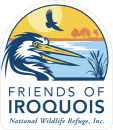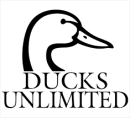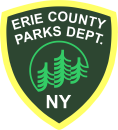Ways to Get Involved
Whether you want to further conservation, learn more about nature or share your love of the outdoors, you’ve come to the right place. National wildlife refuges provide many opportunities for you to help your community and fish and wildlife by doing what you love. We wouldn't be able to accomplish our mission without our volunteers, partners, youth groups, landowners, neighbors and residents making an everlasting difference.
Volunteering
The refuge supports and encourages an active volunteer program. Depending on their skills, interests, and available time, volunteers can assist with the biological, outreach, maintenance, public use, educational or administrative tasks on the refuge. If you have the time and the willingness to make a commitment, we'd love to talk to you about your interest in volunteering with us.
| Role | Time of Year | Description of Responsibilies |
| Office Assistant | Year-round | Volunteers may do a variety of clerical, organizational, or administrative tasks; computer graphic design; data base management; a variety of writing tasks; and/or staffing the visitor information desk. |
| Naturalist Interpreter | Year-round based on activity | Preparing and presenting interpretive programs, helping to create exhibits and educational material, assisting with special events, greeting visitors at the Visitor Center, writing articles, trail maintenance. |
| Biological Assistant | March-October, based on need. | Experienced persons can help with habitat maintenance or restoration, wildlife surveys, invasive species invasive species An invasive species is any plant or animal that has spread or been introduced into a new area where they are, or could, cause harm to the environment, economy, or human, animal, or plant health. Their unwelcome presence can destroy ecosystems and cost millions of dollars. Learn more about invasive species control, mapping, and/or data management. |
| Maintenance Assistant | Year-round based on activity | Skilled volunteers may help with minor vehicle and equipment maintenance, maintaining buildings, gates, and signs; trail maintenance, mowing, managing gardens, snow removal, and, and carpentry projects. |
If you have a particular skill or talent that you believe may be useful to the Refuge, but it doesn’t seem to fall under one of the descriptions above – don’t assume that we can’t use you. Every now and then, a potential volunteer appears who has a talent that we didn’t even know we needed until we took a closer look!
To begin, get in touch with logan_sauer@fws.gov about your particular interests for volunteering.
Another way to get involved at the refuge is through The Friends of Iroquois National Wildlife Refuge, Inc. The friends group is a not-for-profit organization dedicated to increasing public awareness of the Iroquois Refuge and to helping the community understand its mission and goals. Visit the FINWR website for more information.
Thank you for your interest in volunteering at Iroquois National Wildlife Refuge!
Our Partners
The refuge has partnered with many different organizations for to habitat restoration, interpretation programs, youth orientations, special events and much more. We provide a lot more to visitors and recreationist because of this and can not thank them enough. Below is a list of partners that contribute to the mission and goals of Iroquois National Widlife Refuge Refuge:
- Lake Plains Waterfowl Association
- Western New York and Finger Lakes Waterfowl Association
Education Programs
Youth Conservation Corp
The Youth Conservation Corps Program (YCC) is a summer employment program for youth from all segments of society, who work, earn, and learn together doing outdoor conservation projects for the wildlife refuge. The work is planned to provide enrollees with a better understanding of their environment and the management of our natural resources. Typical work includes trail maintenance, painting, invasive species invasive species
An invasive species is any plant or animal that has spread or been introduced into a new area where they are, or could, cause harm to the environment, economy, or human, animal, or plant health. Their unwelcome presence can destroy ecosystems and cost millions of dollars.
Learn more about invasive species removal, bird banding, landscaping and weed control and trash pickup. Unfortunately, there will not be a YCC program for summer of 2025.
Student worker programs and other job opportunities
Refuges across the nation offer full-time jobs, internships, and seasonal positions through USAjobs, American Conservation Experience, Student Conservation Association, Hispanic Access Foundation’s MANO Project, and Environment for the Americas. Check out the Texas A&M University Natural Resources Job Board and other conservation job boards for other job opportunities!






